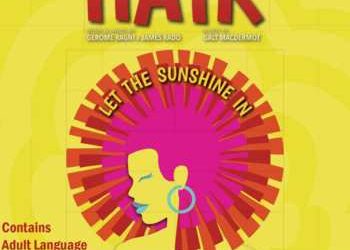In its first year of service, 211 Metro Chicago has connected more than 100,000 Cook County residents in need with critical health and social services.
Chicago, IL-(ENEWSPF)- 211 Metro Chicago celebrates its first year of operation. The service reflects on its immense success in connecting more than 100,000 Chicago and suburban Cook County residents. People found essential community needs and social service support. The service is operated by United Way of Metro Chicago in partnership with the City of Chicago and Cook County. The free, 24/7 helpline officially launched on January 27, 2023, and quickly became a transformational asset to the region.
“211 Metro Chicago is a shining example of the good we can do when we unite government, philanthropy, and social service organizations to solve real problems in our communities. We are extremely proud of the success the helpline has achieved in its first year,” said Sean Garrett, President & CEO of United Way of Metro Chicago. “211 Metro Chicago is not only connecting real people with critical services such as housing and financial support, but it is also highlighting the pressing needs in our region through actionable data to help tackle these challenges. Thanks to the strength of our partnership with the City of Chicago and Cook County, United Way looks forward to growing our reach to hundreds of thousands more of our neighbors in need.”
211 Metro Chicago Fielded 108,770 Contacts
As of December 31, 2023, 211 Metro Chicago has fielded 108,770 contacts via phone, text message, website search, and chat. This was from residents in multiple languages, including Spanish and Arabic, and across varied communities in Cook County. The top three Chicago neighborhoods served were Chatham, Auburn Gresham, and Roseland. The top three suburban Cook County community areas served were Chicago Heights/Ford Heights, Calumet City, and Phoenix/Harvey. Additionally, 211 Metro Chicago has found:
- The four most common needs for area residents were:
- housing and shelter,
- utility assistance,
- employment and income assistance,
- and access to food.
- Needs varied across the region. There were higher housing needs (49%) in suburban Cook County compared to the city of Chicago (40%).
- 94% of physical contacts (via phone, text, chat, or email) are in English, with 6% in Spanish. Regarding searches, 96% are in English, 3% are in Spanish, and 1% are in other languages.
- 58% of physical contacts self-identified as female.
- 18.5% of physical contacts reported having a disability.
- 15% of physical contacts had children in their household under the age of 18.
- 11.3% of physical contacts are veterans or families with veterans in the household.
- The largest age group of callers was ages 25-34 (15%), followed by 55-64 (11%).
Access to Thousands of Resources
“For the past 12 months, Chicagoans have gained access to thousands of vital resources via the 2-1-1 helpline. This resulted in over 100,000 referrals for residents in need,” said Mayor Brandon Johnson. “Providing access to over 16,000 programs, 211 Metro Chicago highlights the value and importance of community collaboration as we work with United Way and Cook County, leveraging the full force of government to serve those who need it most. We encourage all residents to continue to text or call 2-1-1 for access to critical social services in the year ahead.”
2-1-1 is operated by United Way of Metro Chicago and supported by the City of Chicago, Cook County, and philanthropic partners. Also involved are the 211 Metro Chicago Advisory and Executive Boards comprising business, civic, charitable and social service organizations. With this support, 211 Metro Chicago is empowered to help residents navigate unexpected challenges. Among these were the severe flooding that struck the city in July 2023 and suburban Cook County in September 2023.
211 Metro Chicago saw a 30% increase in volume in July related to the flooding in the Austin community area. The service was instrumental in connecting residents with FEMA and disaster-related resources. Additionally, 2-1-1’s contact volume remained at this level as the helpline worked with both the City and suburban Cook County. This was when flooding continued into September. As a result of 211 Metro Chicago’s disaster relief efforts, the helpline now works as part of the Emergency Management team in Suburban Cook County to connect individuals with additional resources.
“Valuable Resource for Cook County Residents”
“211 Metro Chicago is proving to be a much-needed, valuable resource for Cook County residents and is improving service coordination in suburban Cook,” Cook County Board President Toni Preckwinkle said. “We encourage residents to utilize this helpline to address health and social service needs, especially during this cold winter season.”
In 2023, 211 Metro Chicago also helped broaden access to food resources. It did this with its partnership with the Greater Chicago Food Depository, assuring that all food resources in the helpline’s searchable database are updated every six hours. Additionally, 2-1-1 partnered with 3-1-1, 9-1-1, and 9-8-8 to ensure that health and human service referrals were available for those in need no matter which number an individual called.
211 Metro Chicago helps residents connect with housing, food, utility payment assistance, heating, and other free-to-low-cost health and social services. Dial 2-1-1 to speak with a local Resource Navigator on the phone. To connect with 211 Metro Chicago via text message, text your zip code to 898211. Visit 211MetroChicago.org to communicate with resources via web search and chat. Live Resource Navigators are available 24 hours a day, seven days a week.
2-1-1 does not replace vital helplines like 9-1-1, which individuals should continue to call for emergencies. Requests for City infrastructure services and other non-emergency safety-related requests should go to 3-1-1 or the city or village office if 3-1-1 is unavailable in your community. Individuals experiencing a crisis related to mental health or emotional well-being should call 9-8-8 for immediate phone support.
About 211 Metro Chicago
211 Metro Chicago is a 24/7/365 helpline connecting Cook County residents to health and social service resources. 211 Metro Chicago is operated by United Way of Metro Chicago and launched with support from the City of Chicago, Cook County, philanthropic partners, and the 211 Metro Chicago Advisory and Executive Boards composed of business, civic, charitable, and social service organizations. United Way of Metro Chicago mobilizes private, philanthropic, and public sector support to help individuals meet their basic needs and works to support equitable transformation in neighborhoods across the Chicago region. Visit 211MetroChicago.org to connect with these resources.
About United Way of Metro Chicago
United Way of Metro Chicago brings together business, government, philanthropic, individual, and community leaders to deliver funding and resources while amplifying the expertise of nonprofit organizations across greater Chicago. We help individuals meet their basic needs and work alongside neighborhood partners to address local priorities and create communities where all people can thrive. United, we are building a more substantial, more equitable Chicago region. Visit LIVEUNITEDchicago.org to learn more.









